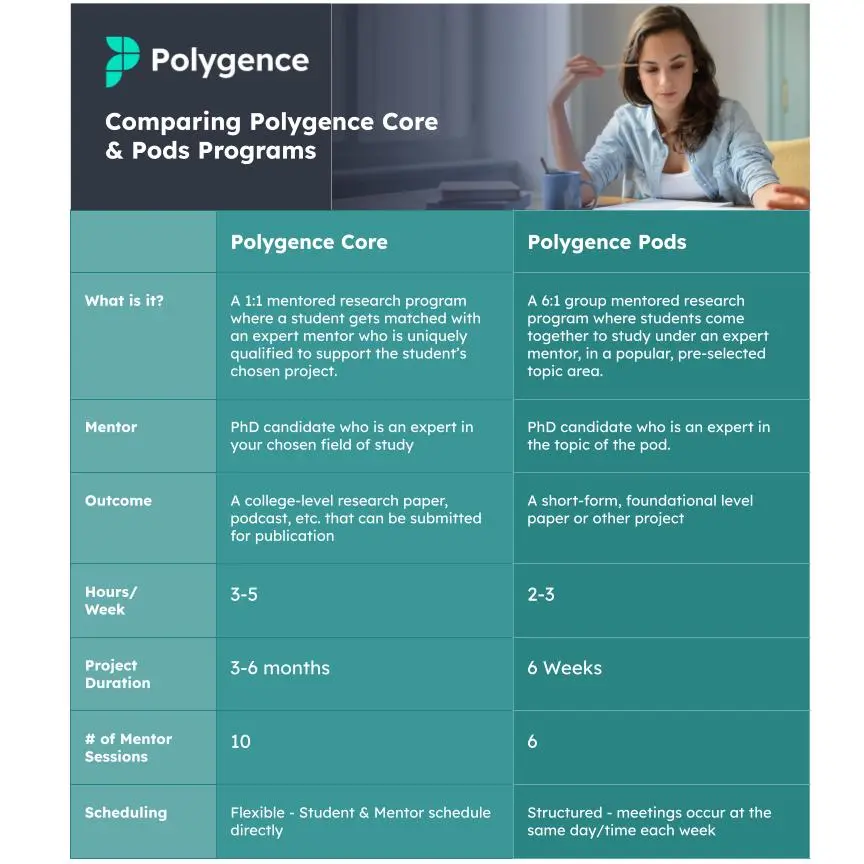10 Environmental Research and Passion Project Ideas for High School Students
7 minute read
Are you ready to step up as an environmental hero? With our planet facing unprecedented challenges, high school students like you have the power to make a significant impact through environmental science. Imagine exploring the effects of ocean acidification, designing sustainable cities, or researching innovative solutions to combat climate change. As new environmental questions arise each year, the need for passionate individuals equipped with research knowledge is more critical than ever. By engaging in environmental research and projects, you can not only deepen your understanding of ecological issues but also develop essential problem-solving skills that will serve you well in any future career. Whether your interests lie in wildlife conservation, renewable energy, or environmental policy, there’s a project waiting for you to uncover its secrets and contribute to a better world. Let’s explore the exciting opportunities that lie ahead!
Do your own research through Polygence!
Polygence pairs you with an expert mentor in your area of passion. Together, you work to create a high quality research project that is uniquely your own.
Why should high school students study environmental science topics?
High school students and their generation are in a unique position to learn about and contribute to the field of environmental science. Growing up in a world that is increasingly threatened by climate change, many young people are passionate about protecting the environment because they sense the urgency of the issue and want to take action.
A 2021 study by Deloitte found that climate change and environmental issues were the top concerns for GenZ, ranking ahead of unemployment and healthcare.
Sustainability projects for students hold immense significance in your educational journey and are important for these reasons:
Fostering a lifelong love for the environment: By engaging in passion projects, students develop a deep and lasting connection with the environment. They become more aware of the world's ecological challenges and are inspired to become lifelong stewards of planet Earth.
Building critical problem-solving skills: Environmental science projects require students to analyze complex issues, gather and interpret data, and propose solutions. These critical thinking and problem-solving skills are not only valuable in academia but also in future careers.
Making a tangible impact: Passion projects empower students to make a real-world impact. Whether it's researching phytoplankton blooms or studying the ecology of viruses, their efforts contribute to our collective understanding of environmental issues and potential solutions.
Preparing for future opportunities: Many universities and scholarship programs value passion projects as indicators of a student's dedication and initiative. These projects can open doors to higher education opportunities and scholarships.
Personal growth: Beyond academic benefits, passion projects promote personal growth. Through Polygence’s Pods program, students who are passionate about environmental science learn to manage their time, set goals, and collaborate with a small group led by an experienced mentor; all are essential skills for success in any field.
What are a few environmental science project ideas?
If you’re interested in learning more about topics related to ecology, sustainability, conservation, climate change, green energy, or environmental impact and implications, consider using one of these eco-inspired passion project ideas for high schoolers as the focus for your research.
1. What triggers phytoplankton blooms off the Southern California coast?
Investigate the environmental factors that trigger the growth of microscopic algae, or phytoplankton, along the Southern California coastline. You will analyze publicly available datasets of physical, chemical, and biological data, including nutrient concentrations, temperature, and algae abundance, collected by scientists. Through statistical analysis, you will identify the key factors that influence phytoplankton blooms.
2. The ecology of viruses
Dive into peer-reviewed scientific articles and discuss how changes to our planet might affect the dynamics of a virus of your choice. Can global warming really make pandemics more likely? If you're interested in applying to public or private agencies for fellowships or scholarships, this project is the perfect opportunity to showcase your talents and stand out from the crowd.
3. Wildfire impacts on forest regeneration and carbon storage
The devastating wildfires currently plaguing the United States are causing both ecological and economic damage. In this exciting project, learn how to use publicly available online resources, such as GIS databases of fire history and forest plot inventory, to analyze the effects of wildfires on seedling and sapling density. You can also learn/use R programming to perform basic statistical analyses and create stunning maps showcasing important information, such as fire frequency, vegetation, and carbon storage.
4. How to create a sustainable business
Interested in the intersection of sustainability and business? Review criteria for Environmental, Social, and Governance. Look at successful businesses with high scores and see how that could apply to a new company. Think through the product and overall business and create a presentation to pitch the company to investors.
Making a difference starts with you
Interested in Environmental Science? We'll match you with an expert mentor who will help you explore your next project.
5. What makes a weed a weed?
Have you ever noticed how weeds manage to thrive in the most unexpected places without any care, while it can be quite challenging to keep a houseplant alive? Explores the secrets of these resilient hitchhikers and uncover valuable insights that we can apply to our own plant care practices.
6. African rainfall and climate: responses to a warming world?
More than a billion people rely on the African monsoons as their primary water source, making it essential to comprehend how human-caused global warming may impact rainfall patterns. Explore how environmental factors, such as ocean temperatures and wind direction/speed, impact African precipitation over time.
7. Fashion with a purpose: reduce, reuse, and recycle
Interested in fashion design? The aim of this project is to promote awareness about climate change through fashion design. Use various materials such as trash, recyclables, repurposed items, and second-hand materials to create your own items that look great and are good for the environment!
8. Research paper on species invasion
A major cause of global biodiversity loss is the introduction of invasive species (such as lionfish and zebra mussels) outside of their natural habitats. Investigate a specific invasive species, and analyze: 1. the cause(s) of species introduction in a novel geographic region, 2. the environmental factors contributing to its success, and 3. how the invasive species impacts its new ecosystem.
9. Climate change and coral reefs: what threats are our coral reefs facing?
Coral reefs are under multiple "stressors" including ocean acidification, global warming, pollution, and overfishing. How are these threats affecting coral reef ecosystems and what are the consequences of one or all of these "stressors"? What are some practical solutions that can help save our coral reefs? What groups, governments, or companies can get involved to help out?
10. Trash talk: ways to reduce laboratory waste
Every year, laboratories produce 12 billion pounds of plastic waste. A great project would be to explore ways that laboratories can reduce plastic waste by using glass pipettes, recyclable gloves, or other equipment, while still ensuring the equipment is sterile.
How can Polygence help start an environmental project?
Projects can be very fulfilling and allow you to develop your passion for a particular topic, and help you make decisions like choosing your college major. Further, these projects offer a lot of flexibility in terms of what the final product can actually look like, and give you an edge in the college admissions process.
Are you ready to embark on an exciting journey of discovery and environmental impact? Polygence offers a unique opportunity for high school students like you to dive deep into your passion for environmental science. Also check out our chemistry projects for high schoolers as well as our leadership project ideas and math projects for high schoolers.
Polygence Scholars Are Also Passionate About
Examples of Environmental Projects Completed by Polygence Students
Austin’s project: How Switching to Sustainable Practices in Large Companies or Small Companies Can Positively Affect Their Business and Corporate Social Responsibility
Cecilia’s project: The Impact of Climate Change on Animal Behavior: The Arctic Marine and Monterey Bay Ecosystems
Clara’s project: How Will a Lower Population of California Sea Otters Disrupt the Ecological Balance in Monterey Bay?
Connor’s project: Research Paper on Rising Global Temperatures and Increased Forest Fires
Eda’s project: How Does Exposure to Environmental Toxins During Key Developmental Stages Affect One’s Risk of Getting Breast Cancer Later in Life?
Suraga’s project: Measuring the Efficiency of Greenhouse Gases
Tridib’s project: California in Flames: A Literature Review on the Causes and Effects of Wildfires
What does the Polygence Pods program provide?
Our Polygence Pods program is the perfect place for budding environmental scientists to start exploring research. Through Pods, we’ll connect you with a small (3-6 person) group of fellow high school students, all of whom share a passion for environmental science. Pods work together alongside an expert mentor in the field. During weekly meetings, those mentors present lectures and lead group discussions while guiding and supporting each individual member throughout the process of creating their own research outcomes. For example, you could join a Pod to learn about the intersection of rare species’ habitats and data science! The whole process takes only six weeks from start to finish.
Whether you're intrigued by phytoplankton blooms, virus ecology, wildfires, sustainable businesses, or any other environmental topic, Polygence Pods provide the ideal platform provides the platform to explore your interests fully by:
Creating your own research or passion project: Tailor your project to match your specific interests and schedule. Your project is uniquely yours.
Receiving expert guidance: Work closely with knowledgeable environmental science research mentors who will provide valuable insights and expertise to ensure the success of your project.
Showcasing your final product: Polygence offers options to explore multiple topics or present your final project. Share your findings and discoveries with the world.
Don't wait to utilize your passion for environmental science to start addressing the many urgent questions demanding researchers’ attention. Let us know which Pod you’d like to join, and if it’s not already open to applications, we’ll let you know when the application becomes available. Join Polygence Pods and take the first step towards exploring your passions, making a difference, and getting connected to like-minded peers who share your passion for the environment!

Your Project Your Schedule - Your Admissions Edge!
Register to get paired with one of our expert mentors and to get started on exploring your passions today! And give yourself the edge you need to move forward!
